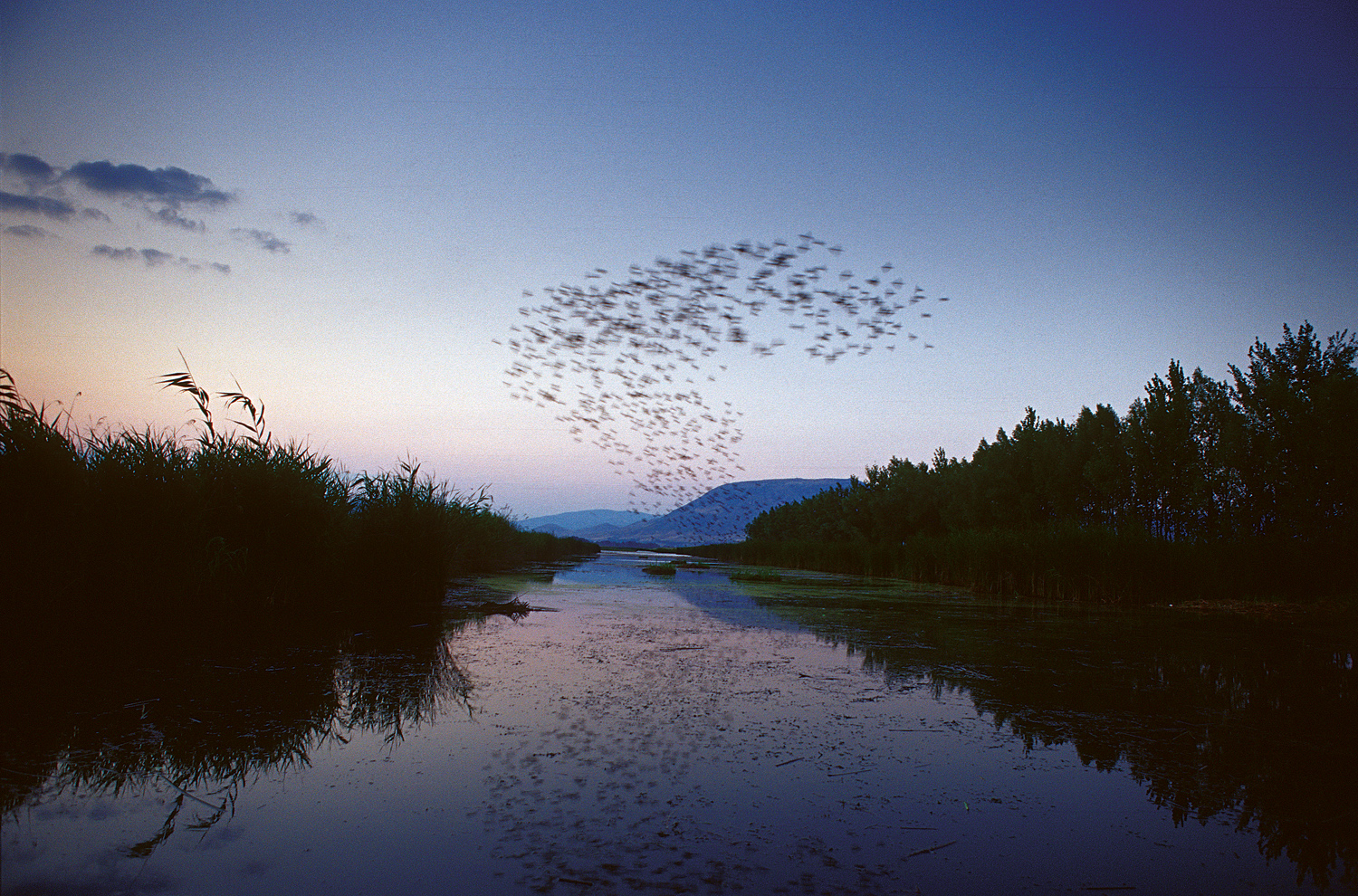Lake Kaz is a wetland located between the Turhal and Pazar districts of Tokat province. This lake, located approximately 25 kilometers from Tokat city center, with an altitude of 620 meters and an area of approximately 1000 hectares, is one of the largest wetlands in the region. In the region where the terrestrial climate is effective, the lake environment has been an attraction center for nature lovers throughout the year.

Kaz Lake (Tokat Governorship)
Biodiversity and Bird Species
Lake Kaz is located on Turkey’s most important bird migration routes. Thanks to this feature, the lake serves as a critical resting and feeding area for migratory birds
As a result of studies conducted in the area, more than 110 bird species have been identified to date. The main bird species observed around the lake are:
- Ruddy Shelduck (Tadorna ferruginea)
- Heron species (Ardea sp.)
- Duck and goose species (Anas sp.)
- Crane (Grus grus)
- Flamingo (Phoenicopterus roseus)
Since some species are endangered, Kaz Lake is also of great importance for the conservation of these birds.
Ecosystem and Natural Structure
Lake Kaz is surrounded by water surfaces, reed beds, marshy areas, and wet meadows. These habitats provide living spaces not only for birds but also for fish, reptiles, amphibians, and various aquatic plants. Aquatic plants such as reeds, rushes, and water lilies are abundant in the lake. This vegetation contributes to the ecological balance of the lake and also serves as a natural water reservoir for agricultural areas in the region.
Conservation Status and Legal Situation
Lake Kaz was declared a “Wildlife Protection Area” in 1991. Thus, the lake and its surrounding natural life have been brought under legal protection, and activities such as hunting and construction have been restricted. Lake Kaz, evaluated under many national and international regulations related to the protection of wetlands, has an ecosystem structure that complies with RAMSAR convention criteria.
Ecotourism
Lake Kaz is a suitable destination for nature photographers, birdwatchers, biology students, and individuals who want to spend time intertwined with nature.
Thanks to specially built observation towers for birdwatching at the lake, wildlife can be observed without disturbance. Additionally, walking trails created around the lake offer visitors the opportunity to be alone with nature. These visits, made without harming nature, are among the most beautiful examples of ecotourism.
Lake Kaz is not just a natural richness, but also a cultural symbol for the local people. People living around the lake see it both as a source of livelihood (fishing, agricultural irrigation, etc.) and as a spiritual heritage.
Transportation
The lake is approximately 30 minutes away from Tokat city center by road. Transportation by private vehicle is possible. Since the lake area is under protection, activities such as swimming, boat tours, camping, or lighting fires are prohibited here. Visitors can only make observations along designated routes and towers.
Lake Kaz is one of Turkey’s most valuable wetlands with its natural beauty, biodiversity, and conservation status. It holds significant potential for both scientific research and sustainable tourism.


